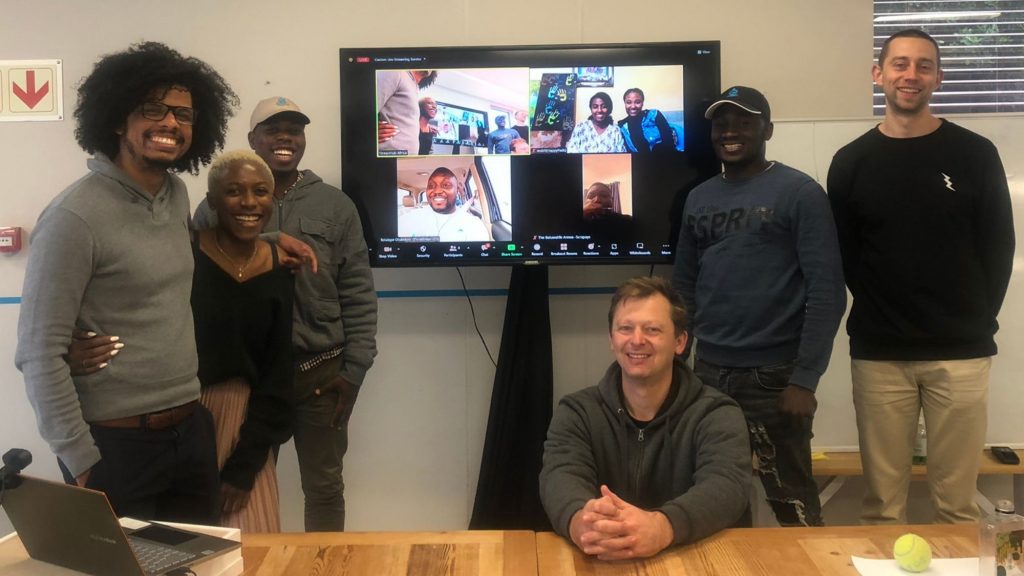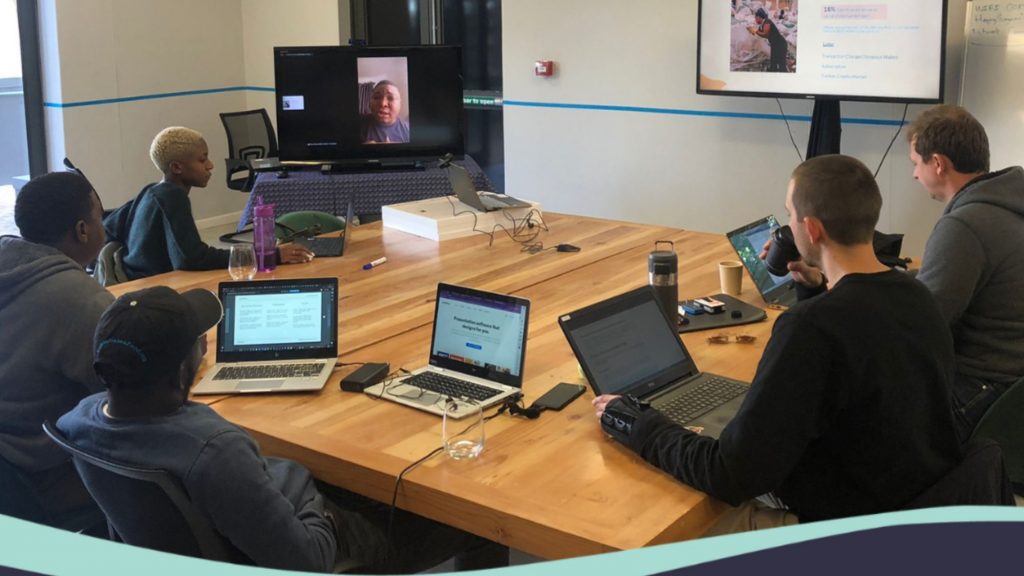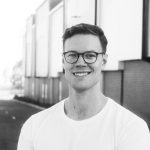LG’s 100-Inch QNED evo AI TV Redefines Big-Screen Viewing in South Africa In a bold leap forward for home entertainment, LG Electronics South Africa…
OceanHub Africa announces third ocean-minded cohort

Among the six ocean-minded entrepreneurs selected for the third cohort of OceanHub Africa count the founders of three Nigerian start-ups. They will now attend an eight-month accelerator after being selected from 128 applicants representing 33 different countries.
OceanHub Africa (OHA) is billed as Pan-Africa’s first and only ocean impact-focused business accelerator. It unveiled the final six start-ups after initially inviting applications in April this year.
The third cohort already participated in a hybrid bootcamp in September with a focus on capacity building, peer learning and bonding. Selected entrepreneurs were trained by the OceanHub Africa Team. Many topics were covered, from setting up data rooms and customer discovery to presenting pitch decks and financial and impact reporting.
The bootcamp training included expert guest speakers from the Pan African accounting and consulting firm Allegro Enterprises, the South African hardware focused early-stage fund, Savant Venture Fund and Jobox, a recruitment company specialising in sourcing talent for start-ups.
Over the next few months, the selected blue start-ups will receive further support from the accelerator’s team, mentors and partners, to grow their businesses through product development, access to business, engineering and scientific expertise, access to market leads, and hands-on services from corporate partners.

Next year February, during the Ocean Innovation Africa Summit the selected start-ups are set to graduate from the acceleration programme. The third cohort consists of:
SeaH4, South Africa
Johannes Bochdalofsky and Theodore Batik are the co-founders of SeaH4 based in South Africa. SeaH4 offers the maritime sector an alternative to fossil fuels to decarbonize at scale, reducing GHG emissions. Their algae-based biofuel is carbon neutral and compatible with the existing fossil fuel infrastructure. Additionally, their community-based production approach develops new job opportunities within arid coastal regions.
Happy Pads, Ethiopia
Kalkidan Tadesse and Wubit Tadesse, founders of Happy Pads based in Ethiopia. Happy Pads is a female-founded social enterprise promoting access to eco-friendly hygiene products for women, while reducing plastic pollution and encouraging a circular economy in the agriculture sector. They produce an alternative to conventional plastic-based sanitary pads made of agricultural waste, making them 100 % biodegradable and chemical free.
Eja-Ice, Nigeria
Yusuf Bilesanmi is the founder and chief executive of Eja-Ice which is based in Nigeria. Eja-Ice tackles the challenge of fish catch loss affecting small-scale fishers due to insufficient access to cold-chain facilities. They offer solar-powered refrigeration systems and cold chain services in order to mitigate waste and sustain profit across the value chain; solar powered cold rooms for fish storage, solar powered cooling tricycle for last mile distribution and solar powered freezers for retailers.
Kumbatia Seafood, Kenya
Will Gertler, the founder and chief executive, as well as directors Nelson Ondego and Bernard Thoya are the entrepreneurs representing Kumbatia Seafood, based in Kenya. Kumbatia Seafood links marine ecosystem conservation and sustainable livelihood in coastal communities. They provide small-scale fishers with capacity building, access to market, cold chain facilities and financing solutions in order to produce highly-profitable, traceable and ethically sourced seafood.
Think Bikes, Nigeria
Tolulope Olukokun, the chief executive, and Ajayeoba Israel are the entrepreneurs representing Think Bikes, based in Nigeria. Think Bikes reduces greenhouse gas emissions by providing clean transportation alternatives. They manufacture electric cargo bikes designed to meet small businesses’ needs across several sectors, including waste management and small scale fisheries.
Scrapays, Nigeria
Tope Sulaimon and Boluwatife Arewa are the co-founders of Scrapays which is based in Nigeria. Scrapays aims at powering the future of “Recycling as a Business” as a way to scale waste management while promoting job creation. The integration of their online and offline operating system provides individuals with the support to start, grow and scale their mini-recycling businesses throughout each activity of the recycling value chain.
ALSO READ: Fintech, edtech investment dominate SA venture capital

